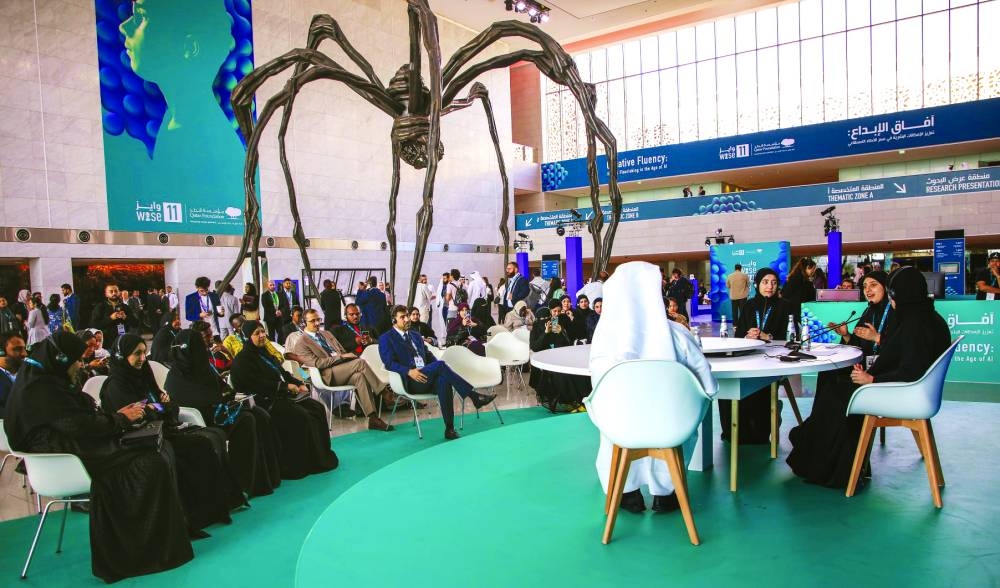Essential ethical practices for students using artificial intelligence (AI) in their education have been explored by young learners at the 2023 WISE, through a session led by Qatar Foundation (QF)’s Akhlaquna initiative.
The global conference on the future of education, hosted by QF's education think tank WISE at the Qatar National Convention Centre (QNCC), featured a discussion on *Artificial Intelligence and the challenges of Education and Ethics* on the summit’s Youth Studio platform, which also aimed to increase awareness of AI advantages in learning, and showcase different applications that help students form basic educational principles.
Six secondary and university students, including the StudyRoad team who took second place in the 2023 Akhlaquna Award along with university students from various tech fields, participated in the session to share their perspectives on AI, education, and ethics.
The Akhlaquna initiative, which falls under QF's Pre-University Education, highlights the relationship between knowledge and ethics, advocates for ethics as a pillar for success in life, and recognises those whose projects and behaviours exemplify strong moral and ethical character.
Farah Emad al-Zubi, a 16-year-old student at Al-Sailiyah Secondary Independent School and a member of the StudyRoad team that won the Akhlaquna Award, told the session: "As AI intersects with education, it enhances learning experiences by offering personalised educational content for each student, tailored through an analysis of their individual behaviour and educational needs.”
"AI's reliance on big data analysis is key, as it allows monitoring of student interests and needs, leading to the development of suitable educational material,” she said.
Al-Zubi also emphasised how AI can support shared learning experiences by providing platforms that connect students and teachers, and discussed the ethics of AI, covering topics like justice, equality, transparency, and privacy, as well as credibility and quality.
"In educational AI applications, we must ensure fairness and equality for all students, maintain transparency in how AI operates, and protect student privacy and data,” she said. “Additionally, AI-generated information and recommendations should be reliable and scientifically sound.”
Jana Yaman Hasnawi, 17-year-old student at Al-Sailiyah Secondary Independent School and another member of the StudyRoad team, spoke about the future of AI: "The continuous progress in machine learning and network technologies is expected to greatly enhance system capabilities, leading to improved efficiency in AI's data processing and decision-making functions."
One of the session’s speakers, Fatima Naqadan, a computer science student at Qatar University, heads a startup focused on AI programme development.
She also delivers lectures on AI ethics.
“There is indeed a significant connection between ethics and artificial intelligence, particularly when we consider the role of developers,” Naqadan said.
“Developers bear a crucial responsibility for integrating ethical considerations into the design and development of AI technologies,” she said. “This responsibility encompasses ensuring transparency in the workings of algorithms, fostering fairness in the outcomes produced by AI, actively working to prevent any form of discrimination, and rigorously protecting user privacy.”

Students discussing AI at WISE 2023.
